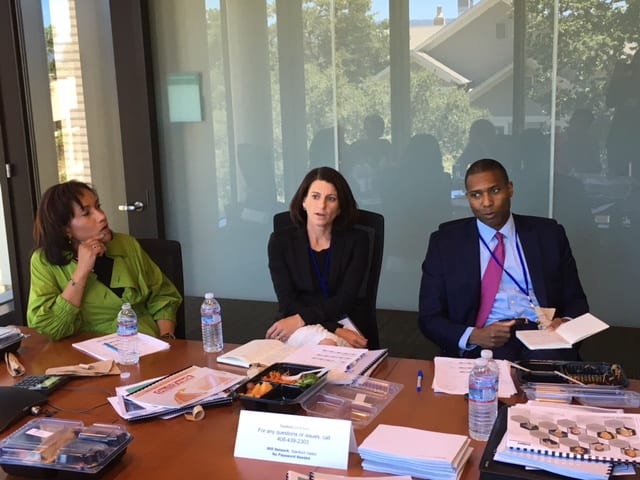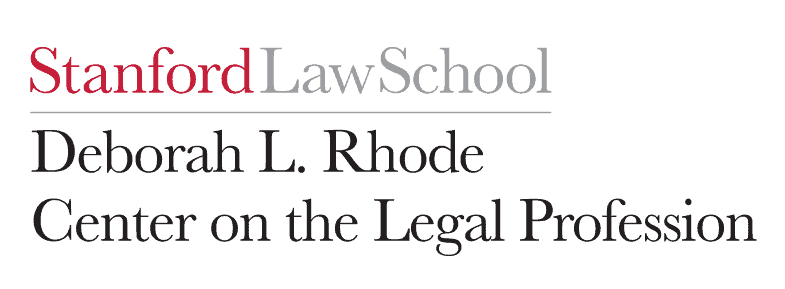LATEST UPDATES
Menu

The goal of building a stronger, more diverse profession has been a pillar of the Rhode Center on the Legal Profession from its inception. Our founding Director, Deborah L. Rhode, was one of the foremost scholars on diversity and well-being in the legal profession, and she made advancing those goals central to the Rhode Center’s mission.
Our research has included a survey of law firm leaders and general counsel about how they are approaching this challenge, and an analysis of how diversity can benefit corporate boards. The study finds that when diversity is well managed, it can improve decision making and enhance a corporation’s public image by conveying commitments to equal opportunity and inclusion.
We’ve also translated research on how to increase diversity and well-being into real-world impact in innovative ways. For example, the Rhode Center hosted a 2016 hackathon, in partnership with Bloomberg Law and Diversity Lab, with teams of practitioners, academics, and law students tackling the challenges of retaining and advancing women in elite firms. One of the proposals that emerged from the effort is now known as the Mansfield Rule, a practice where law firms pledge to affirmatively consider at least 30 percent women, lawyers of color, LGBTQ+ lawyers, and lawyers with disabilities for leadership and promotion opportunities. Last year, 118 large law firms complied with the Mansfield Rule, and early evidence suggests that the initial crop of firms that adopted the rule did significantly better in diversifying leadership positions than those that did not.

In 2019, the Rhode Center partnered with the Stanford Criminal Justice Center on research and policy work on the impact of the California State Bar’s moral character requirement on licensure for qualified people with criminal records. By asking questions about criminal history that are not even useful in predicting lawyer misconduct, the moral character inquiry has had a disparate impact in keeping people of color out of the profession. Many potential lawyers are deterred from pursuing a legal career because they know they will face these questions, our research showed, and others get tripped up in applying to the bar because of confusion around what needs to be disclosed. Our work led to a State Bar task force that relied on our report to change the questions about criminal history for bar applicants to make a criminal record less of a barrier to becoming a lawyer. By lowering unnecessary barriers to bar admissions, we can make the profession stronger.

In 2012, lawyers of color were 12% of the profession. In 2022, they were 19% of the profession, with the biggest growth in Asian-American lawyers. (ABA Profile of the Legal Profession, 2022)
The percentage of Black lawyers has held roughly steady in the past decade—4.7% of the profession in 2012 and 4.5% in 2022—far less than the percentage of Black people in the U.S. population (13.4%). (ABA Profile of the Legal Profession, 2022)
Equity partners in law firms continue to be disproportionately white men. In 2021, 22% of equity partners were women and only 9% were people of color. (NALP Report on Diversity in U.S. Law Firms, 2021)
